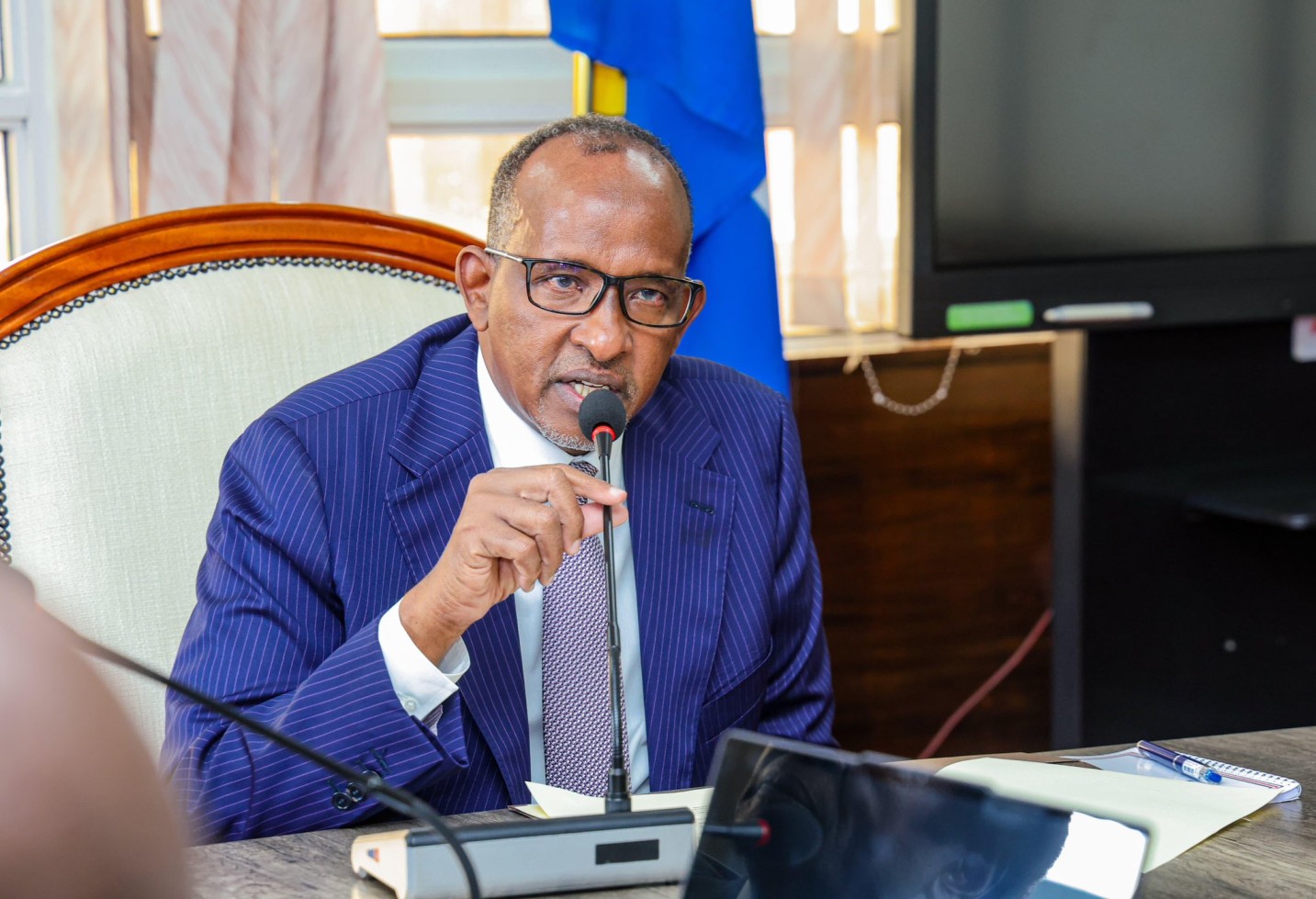Health Cabinet Secretary Aden Duale has formed two separate teams to strengthen Kenya’s health sector, one to guide the implementation of the Social Health Authority (SHA) and another to investigate tissue and organ transplant services, with a focus on ethical compliance and regulatory standards.
In a gazette notice dated April 23, 2025, Duale appointed an 11-member Benefits Package and Tariffs Advisory Panel, backed by five joint secretaries, to advise on the development and review of benefit packages and service tariffs under the Social Health Insurance Regulations, 2024.
The panel, chaired by Prof. Walter G. Jaoko, will serve for three years.
"The Cabinet Secretary for Health establishes the Benefits Package and Tariffs Advisory Panel to advise the Cabinet Secretary and the Social Health Authority (SHA) on the benefits packages under Regulation 40 (1) of the Social Health Insurance Regulations, 2024," the notice reads.
The panel includes Dr. Patrick Amoth, Nehemiah Odera, Margaret Macharia, Dr. Hajara El Busaidy, Robert Rapando, Dr. Gabriel Muswali, Dr. Mary Kigasia Amuyunzu-Nyamongo, Dr. Walter Oyamo Obita, Dr. Valeria Makory, and Stephen Kaboro. Supporting them are joint secretaries Francis Motiri, Dr. Christine Wambugu, Dr. Tabitha Okech, Dr. Patricia Nyokabi, and Dr. Abdiaziz Abdikadir Ahmed.
Their main role will be to provide expert advice on structuring benefit packages and fair pricing of services offered under SHA, which covers services like ICU and HDU admissions.
Beneficiaries can access up to 180 days of ICU or HDU services each year, with co-payments required if charges exceed the allowed limit. The tariffs apply to all empanelled public, private, and faith-based hospitals.
In line with efforts to expand health coverage, Duale announced increased support for cancer treatment under SHA, effective April 1, 2025.
Patients will now be eligible for up to Sh550,000 annually—Sh400,000 from the Social Health Insurance Fund (SHIF) and Sh150,000 from the Emergency, Chronic, and Critical Illness Fund (ECCIF).
"We are thrilled to announce that additional funding has been allocated to enhance the benefits available for patients in need of cancer diagnosis and treatment services. Each patient will now have access up to Sh550,000 per year, specifically designed to support their treatment journey," Duale said.
Further, the government raised the reimbursement rates for ICU and HDU care from Sh4,480 to Sh28,000 per day.
"This change underscores our commitment to ensuring that essential healthcare services are accessible and adequately supported," Duale added.
Despite these reforms, SHA has faced criticism since its rollout on October 1, 2024.
Kenyans have complained about delays, high out-of-pocket payments, and limited access to services, raising questions about the scheme’s effectiveness.
Alongside SHA reforms, Duale also launched a detailed inquiry into organ transplant services.
He established a 12-member Independent Investigative Committee on Tissue and Organ Transplant Services, supported by three joint secretaries.
The committee, led by Prof. Elizabeth Bukusi, will serve for three months.
Members of the committee include Dr. Jonathan Wala Ameyo, Prof. Ahmed Sokwala, Dr. Prexedes Okutoyi, Dr. Patrick Mburugu, Dr. Noelle Atieno Orata, Dr. Ann Kasyoka Barasa, Dr. Diviner Kemunto Nyarera, Dr. Wendy Kimbui, and Sara Talaso Bonaya.
Others are Dr. Charles Kandie, Joseph Ndirangu, and Larica Onam. The secretariat will be run by Dr. Stella Kanja, Rueben Tulei, and Jedidah Effie Oduor.
The team has been tasked with examining transplant governance in Kenya, including regulatory frameworks, ethical practices, licensing, consent procedures, and compliance with the Human Tissue Act.
It will investigate hospitals such as the Mediheal Group of Hospitals, where concerns have been raised.
Duale stated that the committee will review legal compliance, consent forms, identity verification, and the ethical basis of donor-recipient matches.
It will also assess hospital licensing, institutional review procedures, post-transplant monitoring, and whether organs were shipped abroad in line with national and international standards.
"The Committee shall regulate its procedures with respect to the orderly conduct of its proceedings, quorum for the transaction of business and other related matters," the notice states.
The team will also assess the role of Mediheal’s Renal Transplant Ethics Committee, check how the hospital reports to regulators, and examine its compliance with inspection requirements.
The inquiry will include interviews with medical staff, donors, recipients, and hospital administrators.
To support its work, the committee is empowered to consult stakeholders, gather public views, review existing reports, and even commission new research.
It may also co-opt additional experts with the CS’s approval.
Duale said the final report will recommend reforms to improve Kenya’s transplant system and address any professional or criminal misconduct.
The inquiry is part of the government’s broader plan to ensure all organ transplant services meet the highest legal and ethical standards.

